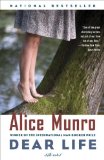Summary | Excerpt | Reading Guide | Reviews | Beyond the book | Read-Alikes | Genres & Themes | Author Bio

A Novel
by William TrevorIn his characteristically masterly way, Trevor evokes the passions and frustrations of the people of a small Irish town during one long summer.
It’s summer and nothing much is happening in Rathmoye. So it doesn’t go unnoticed when a dark-haired stranger appears on his bicycle and begins photographing the mourners at Mrs. Connulty’s funeral. Florian Kilderry couldn’t know that the Connultys are said to own half the town: he has only come to Rathmoye to photograph the scorched remains of its burnt-out cinema.
A few miles out in the country, Dillahan, a farmer and a decent man, has married again: Ellie is the young convent girl who came to work for him when he was widowed. Ellie leads a quiet, routine life, often alone while Dillahan runs the farm.
Florian is planning to leave Ireland and start over. Ellie is settled in her new role as Dillahan’s wife. But Florian’s visit to Rathmoye introduces him to Ellie, and a dangerously reckless attachment begins.
In a characteristically masterly way Trevor evokes the passions and frustrations felt by Ellie and Florian, and by the people of a small Irish town during one long summer.
Anyone drawn to the title and expecting a Nicholas Sparks/Bridges of Madison County-style romance should approach with caution, but those who appreciate exquisitely paced narratives and keen emotional insights will relish this bracing examination of love and its limits...continued
Full Review
 (608 words)
(608 words)
(Reviewed by Marnie Colton).
When reading Love and Summer, American readers will encounter many Irish words and phrases with which they may not be familiar. What follows is a list of some of these, highlighted within a sentence from the book, along with the accompanying definition. Definitions come from the Oxford English Dictionary (OED).
1. By the time the stairs had been hoovered, tea-towels hung up to dry and the daily girl sent home, it was evening.(8)
Vaccuumed (used throughout the British Isles).
2. 'I'm sorry,' she said, turning to face him. 'Arrah, it doesn't matter' (18).
An expletive expressing emotion or excitement, common in Anglo-Irish speech.
3. He hadn't noticed the ring he saw when he looked for it now - so skimpy, so unemphatic on her finger it...

If you liked Love and Summer, try these:

by Edna O'Brien
Published 2017
Collected here for the first time are stories spanning five decades of writing by the "short story master." (Harold Bloom)

by Alice Munro
Published 2013
Suffused with Munro's clarity of vision and her unparalleled gift for storytelling, these tales about departures and beginnings, accidents and dangers, and outgoings and homecomings both imagined and real, paint a radiant, indelible portrait of how strange, perilous, and extraordinary ordinary life can be.